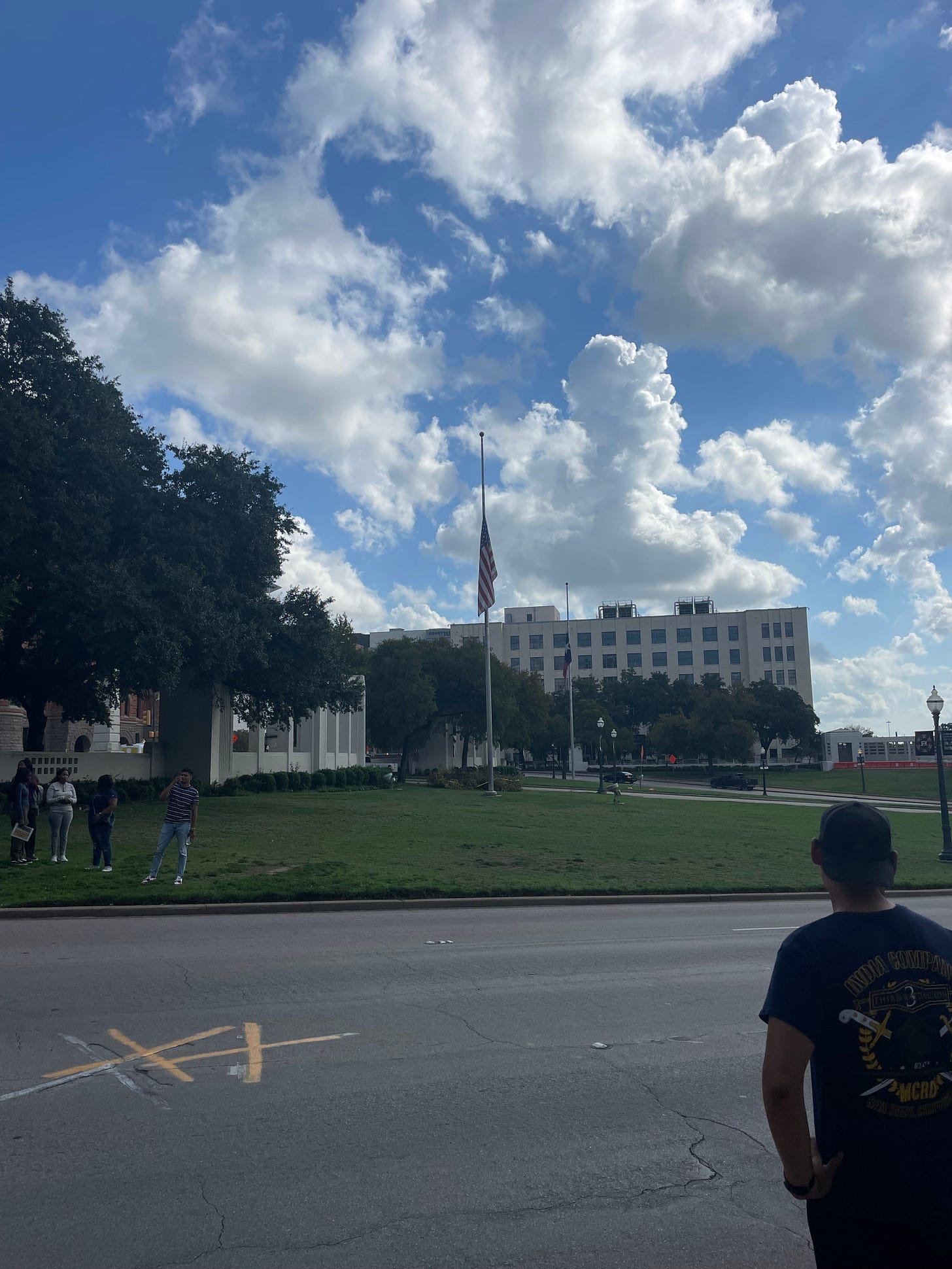What Country in the World
Our guest writer, Jack Burden, is cranking em out. Here’s another. SF
There are Cholula hot sauce packets in the breakfast room, one quarter of a fluid ounce of impeccably spiced vinegary goodness, and it’s no wonder that Texas’s economy, were it to belong to an entire nation, would be the world’s largest. When Massachusetts boasts, “it’s all here,” the Commonwealth betrays an eastern elitist’s naivete about what really matters in the world. Cholula.
The seemingly interminable Texas boom is also what drew “A.” here from East Chicago, Indiana in 1980. His brother got in a little hometown jam – a dispute over a young woman that threatened to spill into dangerous territory – so A. accompanied down to West Houston, where the weather was nicer (East Chicago gets that Lake Michigan wind and damn cold in the winter), the scenery was nicer, and the carpentry jobs down here paid $7 an hour (in 1980), which was more than the $4.25 he was making back home.
“They offered us both jobs. We started work the very next day, and never went back. There was nothing to go back to,” he says, noting that the last time he went home an old friend from school told him he had bounced from a job at KFC to McDonald’s and was thinking about starting a janitorial business but wasn’t sure he could swing it.
A. stayed in Texas, stayed in construction, and is now a supervisor for a job on the Texas A&M campus, with three boys back home in Katy, all of them in college. Israel-Palestine worries him, because he knows that if it goes much further south, his boys may be pressed into service.
Hell, the world worries him, particularly China, whose population advantage puts it so far ahead that he thinks the United States will be overtaken soon (“What’s wrong with being number two?”), and Russia. In Putin, he sees a warlord fashioning himself in the mold of “the Great” tsars of yore, and reckons that if Ukraine goes, then Latvia, Poland, all the old Eastern Bloc states will be next. “He’s been there 20 years and he’s got nothing to show for it,” he says of Putin.
So what should we, the United States, do?
“You can’t be the world’s policeman. You can’t let Russia take over the world, China … You’ve got to create a coalition.”
He took his boys back to East Chicago a few years ago, “back to the ghetto” to show them that life in Katy, where he built a home when they were young, isn’t so bad. And A. counts himself lucky that Texas is not Israel. After all, he reasons, Mexico’s school system could be teaching its kids to go to war and take back the territory it lost coming up on two centuries ago. The type of revanchism that Putin practices, with which China ogles Taiwan (“There was no Communist China back when Taiwan was created”), that haunts the Middle East.
“I’m a Mexican living in Texas, I don’t feel oppressed or anything. We live in peace,” he says. “What country in the world hasn’t been taken over by someone at some other time? Everyone.”
What helps, he acknowledges, is that the quality of life in Texas is sharply better than it is in Gaza.
Or virtually anywhere else in the world. Texas is in perpetual boom mode, and A. knows his story is far from unique. After the oil bust of the 1980s, the state started swelling ever faster. From February 2020, the month before Covid really hit, through the end of 2023, Texas generated 35 percent of the country’s net increase in employment, and has a GDP larger than Canada’s. After World War II, Texas developed from a rural, agricultural state into an industrial and largely urban one, supercharged by the energy sector and population influxes both international and interstate.
Texas has grown so fast and so big that its residents are at a loss for what to call their exploding municipalities. Subdivisions or exurbs? Within the Texas Triangle (or Texaplex), there are at least three “conurbations.” When population growth outpaces vocabulary, it’s an extended boom.
Changing population means changing politics, of course, and Scott has addressed the gerrymandering. It’s the opposite of what we see in Massachusetts, where declining headcount forces the elimination of congressional seats and gerrymandering of a different shape. Where are those seats reapportioned? To the conurbations. And the demographic churn creates a volatile jumble politically, so that Texas is simultaneously deep red and ever threatening to teeter blue.
On Fox News, big-screened across from A.’s coffee in the breakfast room, they’re reporting live from Lewiston, Maine and the aftermath of the latest mass shooting. Partisan talking points don’t even need to be made explicit anymore; they’re so deeply in the fabric that commentators can reference them in coded language and everyone gets the message.
“They’re shooting innocent people now,” says A., shaking his head and noting that you’d just never expect that in a nice place like Maine.
(The American flag flies at half staff by order of President Biden, for the victims in Lewiston, Maine)
And what do you do about that?
“Be glad I’m not a politician. If there’s a God, He better show up soon.”
ReplyForward




